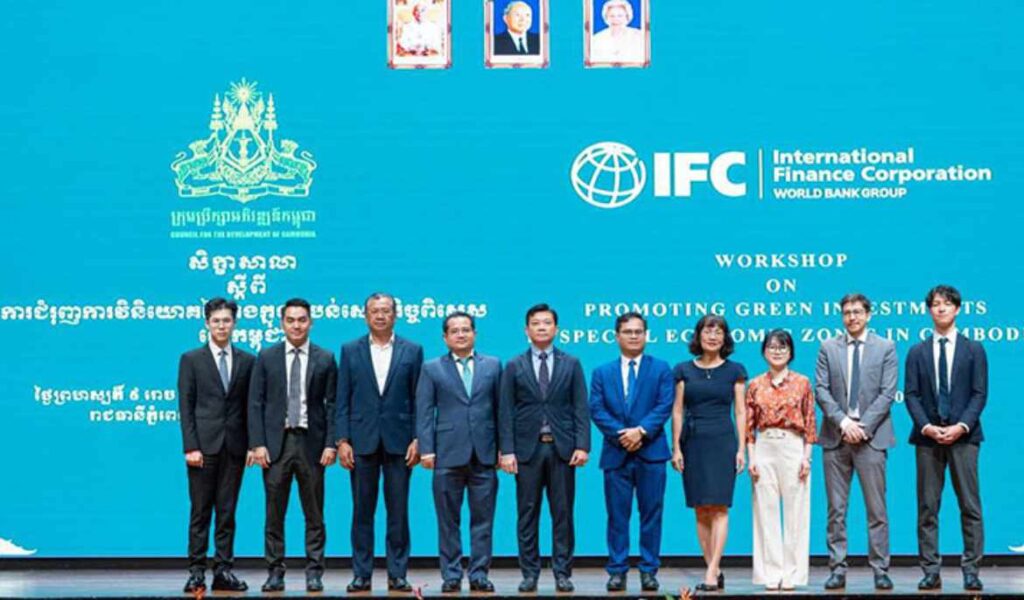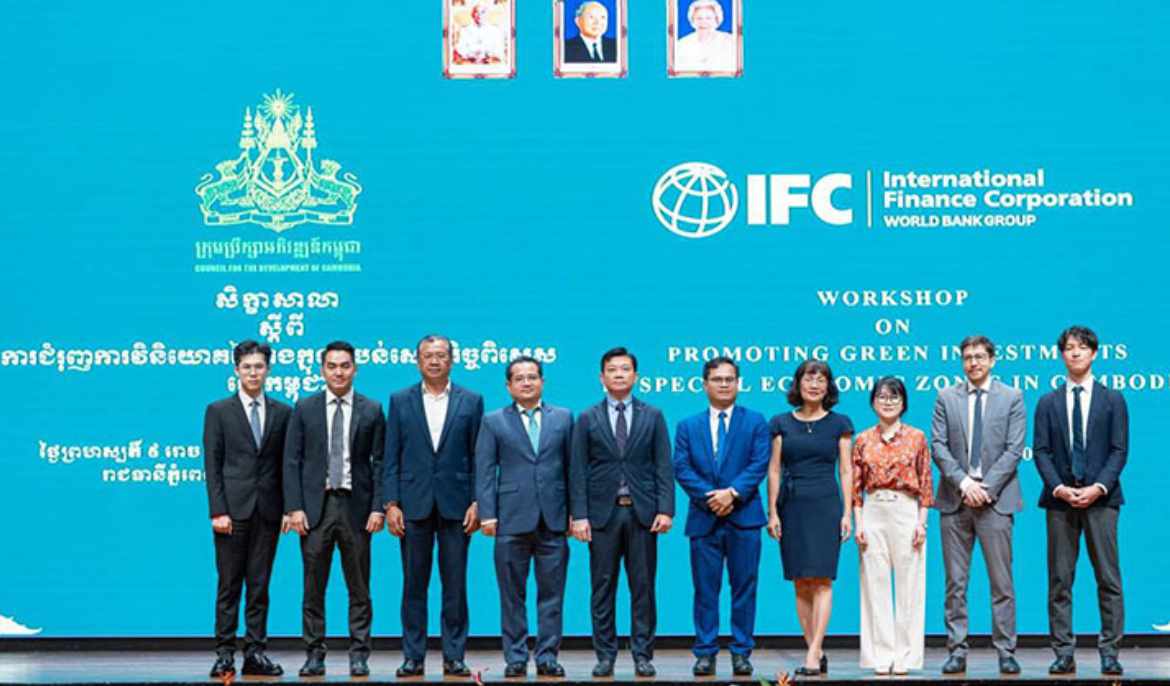Synopsis: Enhanced cooperation among public and private stakeholders would help SEZs evolve into key engines of sustainable and inclusive growth.
The Council for the Development of Cambodia (CDC) and the International Finance Corporation (IFC) co-hosted a workshop to advance green investment initiatives in Special Economic Zones (SEZs), aiming to align industrial development with sustainable and environmentally friendly practices.
The seminar themed ‘Promoting Green Investments in Special Economic Zones in Cambodia’ was presided over by Sar Senera, Deputy Secretary General of the Cambodian Investment Board (CIB) of CDC, in the presence of Dourng Kakada, a representative from IFC, in Phnom Penh.
In his opening remarks, the Deputy Secretary General commended IFC for co-organising the forum and reaffirmed the strategic importance of SEZs in the Kingdom’s economic trajectory.
Senera also highlighted the CDC’s role in attracting foreign direct investment (FDI), fostering industrial diversification, generating employment and strengthening Cambodia’s integration into global value chains.
He noted that exports from SEZs represented 23 percent to 25 percent of the Kingdom’s total exports between 2022 and 2024, underscoring the growing contribution to the national economy.
Senera emphasised the commitment to sustainable investment through the ‘Law on Investment of the Kingdom of Cambodia’ and its sub-decree, both of which encourage capital inflows into green sectors, such as renewable energy, climate-resilient technologies, environmental protection, biodiversity conservation and the circular economy.
He expressed confidence that enhanced cooperation among public and private stakeholders would help SEZs in the country evolve into key engines of sustainable and inclusive growth.
Based on the CDC announcement on Saturday, the workshop introduced the Eco-Industrial Park (EIP) framework and facilitated discussions on regulatory mechanisms to support transition toward greener industrial zones.
The EIP framework was designed to promote resource efficiency, reduce environmental impact and enhance competitiveness across industrial clusters.
The event centred on the EIP framework, highlighting its significant potential to accelerate sustainable investment within SEZs nationwide, which currently play a vital role in the national economy, generating over 200,000 jobs and $6.5 billion in exports, the statement added.
The IFC working group examined how EIPs could further enhance green initiatives across energy, transport and building sectors, while engaging participants in discussions on essential policy frameworks and international best practices.



